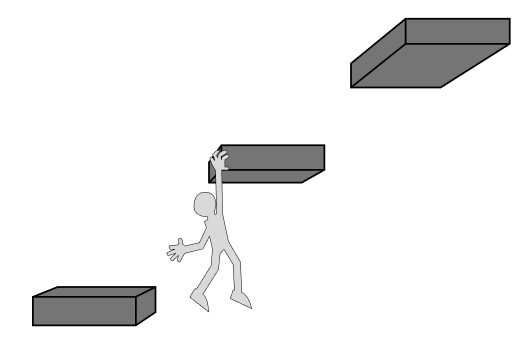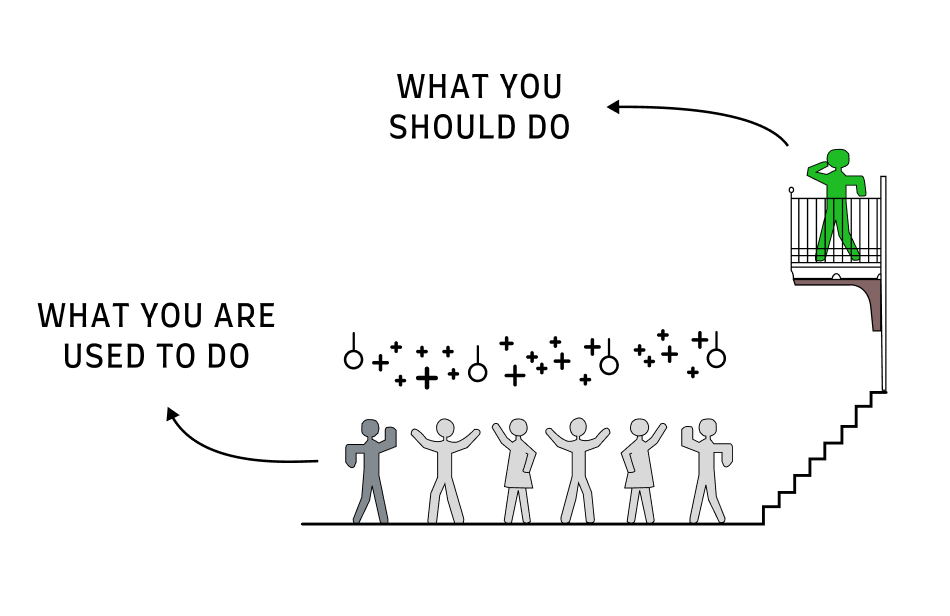50% of more than 100 team leaders I surveyed, don’t know well enough what they are measured on.
(The full survey results will be published in 2 weeks!)
Today’s article is going to be different. Instead of trying to guess the answer, I interviewed an experienced group leader - Shai Nissim (The article is not doing justice to the conversation, which was one of the most insightful ones I had this year)
We’ll cover 4 parts:
Becoming a Group Leader
The challenges of a group leader
The team leader transition - a manager’s perspective
3 tips for team leaders
The first 2 parts may seem less relevant to you - but they set an important context.
I’ve written the article in the first-person perspective, summarizing the conversation I had with Shai. I used my own words, so any mistakes are mine :)
Becoming a Group Leader
A brief intro: I’m a software manager with 15 years of experience in the industry (10 in leadership roles). Currently, I manage ~50 people in my group, after being promoted twice in the last 4 years.
The classic way to become a group leader, is when a team grows too big. It is split into 2, and most often the team leader becomes the group manager.
The Challenges of a Group Leader
Ok, I’m leading a group. Now what?
As a group leader, the problems I face are a bit different than yours.
Syncing between teams
Let’s continue with the example of the big team that was split. Now we need to divide the work between the teams. There are 2 ways I could do that:
Everyone is doing everything - more knowledge-sharing and flexibility.
Dividing the responsibilities - more ownership and expertise.
This is not a one-time decision. I need to constantly reconsider the best approach, based on the latest business needs.
Another challenge in that area is the difference between team leaders. If one team leader initiates changes and pushes the team, and another one is more passive - it can affect the whole group. My job is to make sure we set up processes and dynamics that are healthy for all teams.
Handling team leader dynamics
As with any group of people, there are always differences and egos to manage.
In a big team that was split - it might work smoothly, as people are used to working together. It could also turn into a competition between the teams or team leaders.
In bigger groups, there is a higher chance of fighting for promotion between the team leaders, each trying to prove themselves.
Mentoring the team leaders
We will get deeper into that in the next section, but this is a big part of my job.
The transition from a strong developer to a good leader is hard. This promotion is a bit of an anomaly - often we take the strongest developer and promote her/him. Being a strong developer doesn’t mean you’ll be a good team leader…
Sometimes the mentorship process is long. I try to help the team leaders slowly move away from the technical side to the leadership parts of the role.
The Team Leader Transition - a Manager’s Perspective
“I have too many meetings, I can't work!”
I hear this often from new team leaders. It takes a while to understand that the meetings ARE the work (I’m setting aside the ‘too many meetings’ discussion).
Think about it like this:
As a developer, you had certain skills that made you good at your job. You were appreciated, received good feedback, and felt comfortable.
When you transition to a team leader’s role - you leave all that behind. It’s like stepping off a ladder, but without having anything else to hold onto yet - you are hanging in the air! Not an excellent developer anymore, and not a great team leader yet.
A classic transition
There was a team leader I once managed, who was a very hard worker. Worked long days, and was smart and capable, but really overwhelmed.
We sat down, and looked at her calendar, to understand the root of the problem. No surprise there - she had tons of meetings… But why?
Obviously, she didn’t enjoy being buried in meetings. What stopped her from delegating some of them? The same thing that made her a great developer - the sense of responsibility and ownership. She felt she had to be personally responsible for everything. Even when she tried to delegate a meeting to one of her developers - she participated too…
Letting go
Team Leaders most often don’t have a time management problem, they have a delegation problem. It’s very difficult to let go of your strengths, the areas you feel comfortable at, the ones that got you the promotion.
All human beings want to feel appreciated. The best way to do that is by doing things we know, where we are sure we can move the needle.
The fear of moving the focus to other things is understandable. What if I won’t be good enough? What if I’ll make mistakes?
This is a big part of my job. Making sure the team leaders are comfortable making mistakes, and have the privilege to slowly climb that step.
3 Tips for Team Leaders
Manage your manager
In most cases, a team leader knows much better than me what is the right decision. For example - during planning, the design they receive from the PM team is not good enough. This problem persists, and a team leader raises it to me.
I shouldn’t be the one solving that problem. I expect the team leader to think about the alternatives, consider each one, and suggest what they want me to do. Make my life easier.
I often hear: “You are in charge, and it’s a difficult situation - I want you to make the decision”. I don’t mind making the decision, but you’ll have to tell me what decision you want me to make :)
Think about what your manager needs, and how can you help them.
Initiate processes
From my experience, it’s rare that a team leader initiates a new process. They are mainly focused on survival and the day-to-day.
Most of the new processes come from the top, and receive push-back. For example - a ‘feature ownership’ process, to better define which developer/team owns what. The team leaders know best what would work, but for that, they need to think strategically - outside of a specific feature and their own team.
Look Up
This is the first tole, that actually requires you to raise your head, and look around and above, not only down at your own team. Don’t be satisfied with the technical details.
Ask yourself:
How well do you know the whole product?
Do you know what are the business goals?
How does your team contribute to those goals?
I’ll wrap up with a concept called ‘balcony awareness’.
Imagine you are at a great party, dancing with your friends in the middle of the dance floor. The music is great, and you have a great time. After a while, you get tired, and go take a break at the balcony overlooking the dance floor.
If I asked you in the middle of the dance floor to describe the party - you would have answered from a very limited point of view. When you dance with everyone, you don’t get the nuances and the bigger picture.
On the balcony, you see completely different things.
There is a story about a football coach who watched the first half of each game from the stands, and not from the bench.
To grow into the team leader role - take that step. Leave the dance floor, and move to the balcony.
Anton here. Many thanks to Shai for his input, it was super useful for me! (And I hope for you too)
Back to the original question - “What does my manager want from me?”. There is no easy answer. It changes between managers, and between companies. Your manager is your partner, whether you like it or not - you have to talk about those things.
I hope that reading the direct thoughts of such a manager, gave you good topics for your next 1:1. Maybe even send them the article, and ask for their thoughts about it :)
I will go deeper into some of the topics (like managing your manager, and initiating processes) in future articles, as this one is already my longest :)
Stay tuned!
The 4 Main Takeaways:
Don’t be afraid to step off the edge, you won’t fall. Talk about your fears with your manager.
Look up from the dance floor - you are not one of the dancers anymore. Spend time to understand what’s going on at the company level.
Manage your manager - be intentional about it. Think about how she/he can help you, and what you need from them.
Initiate processes. Ask your manager what they think can be improved in the group level, and act on it.








Thanks Anton. This was a great read, relevant and inspiring!
Loved the article, Anton.
It was nice to hear about managing up from a manager and what your manager is expecting (or would find valuable). I think it could be a whole topic on its own too since there's so much to that.
Keep the awesome articles coming! Always look forward to them